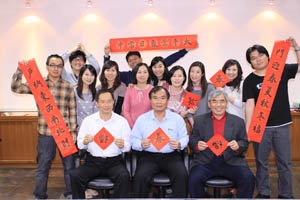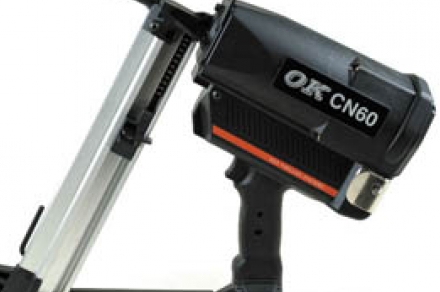
Industry Activities


According to the statistics, the Taiwan’s fasteners sales to the Latin American region took up less than 1% of the total sales values in 2012. The sales to the U.S. reached over 40% of the total sales in the same year. “We can’t be more familiar with the U.S. market, but we don’t know much about the land south of the U.S.” Joyce Tai, Manager of the THREAD INDUSTRIAL CO., LTD, expressed the general feeling of the Taiwan manufactures of the central and south American market. She also mentioned the potential of this region luring the Taiwan manufacturers to make new tries.
Since its establishment in early 90s, Thread Industrial has been working on the central and south American market for more than 20 years with its products sold to Mexico, Brazil, Peru, Chile, Argentina, Columbia and Venezuela, specializing in standard nuts, auto parts and small screws. “At that time, the MIT products were selling very well with their reasonable prices and good quality.” said Lawrence Chow, Vice President of Thread Industrial.
He noted that the company entered the Latin American market mainly to diversify the exports to avoid concentration of the revenues on the European and U.S. regions.
Chow mentioned an unforgettable major change in 1995 which made the entry into the region even more difficult after the company operated in the market for decades. The year saw Brazil, Argentina, Uruguay and Venezuela jointly promoting the “South American Common Market” with an aim to realize zero tax within the region while levying high taxes on products coming from outside. As a result the company’s export to the region dropped dramatically. Now the tax barrier still exists when it comes to trading with the South American Common Market.
Since Chile signed the FTA (Free Trade Agreement) with China for the zero tax trade, the local importers have switched from Taiwan to China for purchasing products. The taxation forms the biggest barrier for trading with the south American market. Even so, Thread Industrial now continues to supply fastener products to the auto maker clients in Brazil, Mexico and Peru with the direct and indirect export to the region taking up about 5% of the company’ exports.
Moreover, the sales of automobiles in Brazil and Mexico have been growing rapidly in recent years and thus drawing much attention. Besides that, the geographical proximity of Mexico to the U.S. instead of the South American Common Market and the country’s levying of the anti-dumping tax on the Chinese nuts has given an advantage to the Taiwan manufacturers who are familiar with the U.S. market in terms of cooperation.
At last, the management team of Thread Industrial pointed out that the company currently sells the products directly or through the Taiwan trading companies familiar with the market and by working with the sizable buyers to evade the risks of bad debts from the small businesses. The philosophy is to seek stable business instead of big business. They also advise the Taiwan manufactures that the Latin America is like other emerging markets where clients pay slowly. With the trading terms established and the products exported at a right time, most of the risks can be avoided. In summary, the Latin American region fully reflects the economic growth power of the emerging markets. It cannot be ignored for the investors who are looking forward to capture the potential of the emerging markets.

Subscribe











